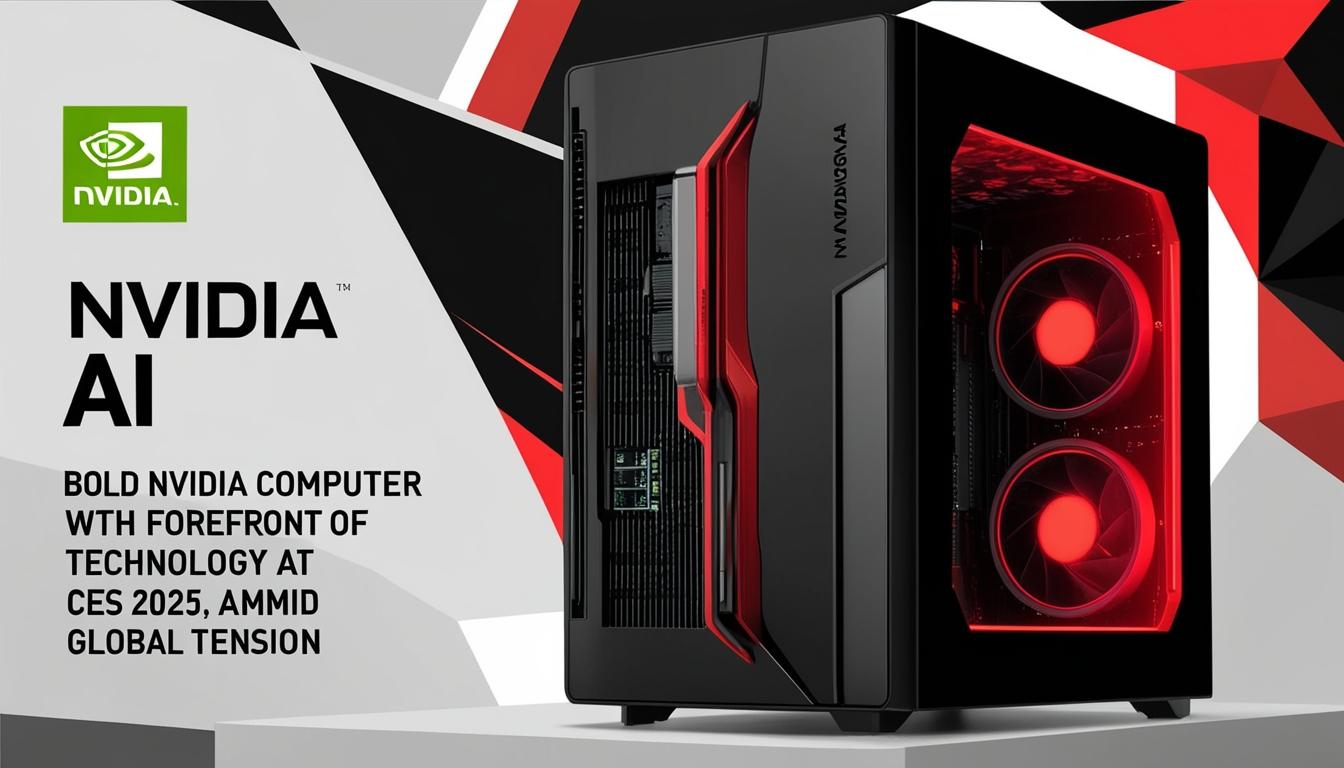The 2025 CES tech trade show, taking place in Las Vegas, has become a vibrant showcase for advancements in artificial intelligence, emphasising the significant role AI is set to play across various industries. The event, which officially kicked off on Tuesday, features an array of companies presenting their latest AI-related products, signalling a notable increase in practical applications compared to previous years. However, despite the excitement surrounding various announcements, the focus remains largely on chip manufacturers, who are introducing market-ready AI products.
A highlight of the event occurred during Nvidia CEO Jensen Huang's keynote address, where he unveiled a series of innovative products including a groundbreaking personal AI computer priced at $3,000. This device utilises the cutting-edge Blackwell chip, which Huang claims positions Nvidia ahead in the field of AI chip technology. Speaking at a media briefing following his keynote, Huang expressed confidence in the transformative potential of AI, particularly in sectors such as autonomous vehicles. “I have no doubt” that Samsung will bounce back from recent semiconductor challenges, he stated, alluding to the competitive nature of the chip production industry. Despite the high-profile revelation, Nvidia's stock experienced a decline of over 6% after the announcement, reflecting Wall Street's cautious sentiment.
Another exciting development at CES involves Nvidia's new GB10 chipset, which aims to transition personal computers into AI supercomputers. This initiative invites competition from established players like AMD, Intel, and Qualcomm, as Nvidia does not aim to dominate the entire segment but instead cater to AI researchers needing robust computing for model prototyping.
On an international front, the implications of geopolitical tensions were highlighted by Tencent’s recent designation as a "Chinese military party" by the Pentagon. This categorisation has prompted the company to consider legal action, aiming to challenge its inclusion on the updated list of entities linked to the Chinese military. The designation raises concerns about potential repercussions, especially with the incoming administration of Donald Trump, which had previously attempted to impose restrictions on Tencent’s services in the United States. Analysts suggest that the situation could lead to increased scrutiny of Chinese tech firms operating in foreign markets, potentially impacting Tencent's operations.
In Japan, Rapidus is making strides in the field of semiconductor manufacturing. The government-backed startup is set for a milestone starting in April when it will commence test production of advanced EUV chipmaking machines. With Japan seeking to re-establish itself as a key player in the global chipmaking industry, substantial government investment denotes the significance of the venture, particularly in light of escalating US-China tensions that are fuelling global efforts to diversify supply chains.
The CES trade show also served as a platform for innovative concepts in the automotive sector. Chinese automaker Xpeng showcased its ambitious flying car project designed for low-altitude transportation. The Land Aircraft Carrier, which combines both aerial and terrestrial capabilities, is slated for mass production in 2026. This development aligns with the Chinese government's vision for a burgeoning “low-altitude economy,” and reflects an intensified push towards novel transportation technologies in the context of US-China competition in the tech arena.
As the CES tech trade show continues, it promises further insights into practical AI applications that could influence business practices across multiple sectors, alongside developments that reflect the broader geopolitical landscape affecting the technology industry.
Source: Noah Wire Services
